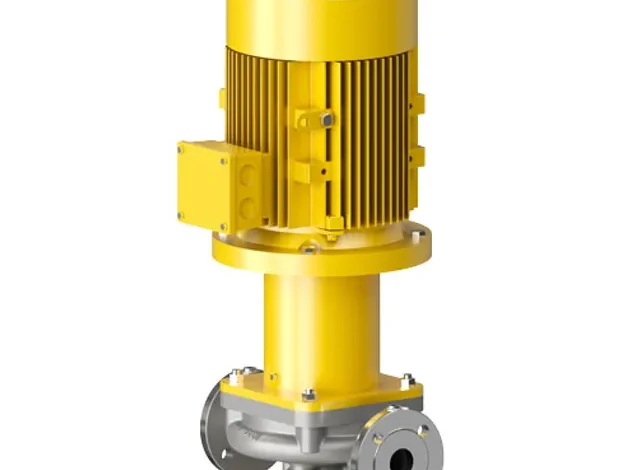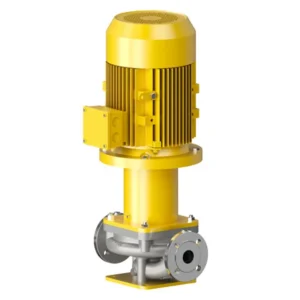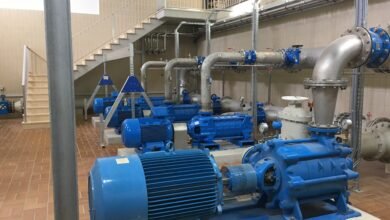Leakage-free methanol pumps for alternative fuel solutions

Safe and efficient mag-drive centrifugal pumps, available from DESMI, can enable leakage-free methanol fuel systems for ships, reducing vessel carbon emissions and climate impact, as flow discovered.
With every year that passes, emission regulations tighten in the shipping industry. Shipowners who want to stay in business must look for ways to reduce carbon emissions to comply with the targets defined in the International Marine Organisation (IMO) greenhouse gas (GHG) strategy and other regulations.
A promising but toxic alternative
Running on alternative fuels is one of the most effective ways of reducing emissions. Methanol provides several key benefits as a shipping fuel, making it one of the most promising alternative fuels: When produced from biomass, green hydrogen, or other zero-emission sources, it enables neutral well-to-wake carbon dioxide emissions. And because methanol stays liquid at ambient temperature and atmospheric pressure, you do not need to invest in complex high-pressure or low-temperature systems to use it.
However, methanol is also toxic and highly flammable, which prompts safety considerations when selecting and installing a fuel infrastructure for ports and ships. Specifically, you must ensure the fuel system is absolutely leakage-free to avoid hazardous situations.
Leakage-free pumps
DESMI’s new mag-drive centrifugal pumps are well suited to operation in a methanol fuel system. They combine the high efficiency and robust reliability of centrifugal pumps with a magnetic coupling, eliminating the pump’s traditional shaft seal solution. As the pump chamber is completely sealed, there is virtually zero risk of methanol leakage.

While the magnetic coupling is a new feature on its centrifugal pumps, the technology itself is not new to DESMI.
“We introduced magnetic coupling technology in the 1990s, so we’re building on three decades of solid experience here,” commented Martin Bro, Global Sales Manager, Gas Systems, at DESMI.
The DESMI mag-drive centrifugal pump is ideal for methanol fuel systems on new-build dual-fuel ships and can also be retrofitted on existing vessels. It is part of a complete portfolio of marine pumps, which covers a wide range of applications.
“We can supply pumps for the entire fuel pathway, from bunkering vessel to engine room,” added Martin. “In addition to mag-drive centrifugal pumps for methanol transportation, we offer pumps for applications such as boosting, draining, and water heating. And we always look beyond the pumps and work with our partners and customers to design a solution that fits the specific requirements to the letter.”
Class approved and certified
The new pump from DESMI is specifically designed for marine applications and comes with a lengthy list of class approvals and certifications, for example ABS, BV, CCS, DNV, KR, and LR. Built for compliance with the IGF Code, it is designed to meet the rigorous safety standards for ships using gases or other low-flashpoint fuels, and for installation in ATEX zone I if required. Its built-in temperature sensor detects overheating and helps avoid breakdowns, and it can be specified with a leakage sensor.
Solutions for a toxic challenge
In addition to setting an ambitious net-zero emission target by (or around) 2050, the IMO has declared that by 2030, the carbon intensity of ships must be reduced by 40% compared to a 2008 baseline. Using methanol and other alternative fuels is an efficient way of reaching both targets, even though these fuels are sometimes hazardous.
“It’s ironic that methanol, which can really reduce the climate impact of the shipping industry, is itself so toxic and flammable,” concluded Martin. “But that’s the reality, and with the right technical solutions, these challenges can be overcome. We’re dedicated to sustainability and energy efficiency, and we’ve worked to reduce the climate impact of shipping for decades. I’m confident that the mag-drive centrifugal pump will help us continue this evolution and contribute to a better future.”







